"When a Mother of a Blind Child Calls Me Crying, She Knows I Understand Completely"
Three mothers raising children with severe vision impairments took the plunge one day and founded an organization to help visually impaired children in the Haredi community and their families. The story begins with a mother insisting to doctors, 'There's something wrong with my daughter'...
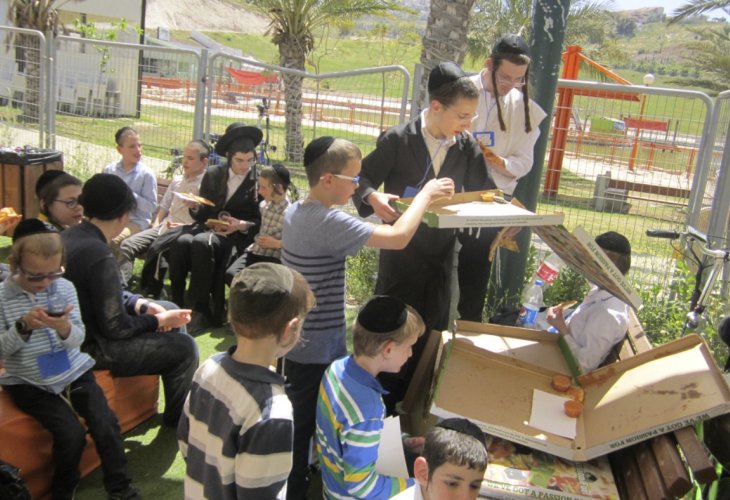
When Shoshana Berger's (a pseudonym) third daughter was born, Shoshana immediately felt something unusual about the baby. Over and over, she insisted at the well-baby clinic and to the pediatrician: 'The baby doesn’t make eye contact; she doesn’t look at me'.
"They told me that I was just hysterical, that I had anxiety, and at worst she had a slight squint that could be easily corrected," she recalls. "But I just couldn't calm down. This wasn’t my first baby, and it was really strange to me how her eyes were half-closed all the time."
The one who finally helped her get a diagnosis was a former neighbor, an elderly woman who worked as a psychologist. "I called her and said: 'Listen, I’m in distress. I’m having a haircut for the eldest and my head isn’t there. I think I’ve gone crazy since the baby was born'. Then she asked me: 'How's the baby?' and I just burst into tears."
The psychologist waited for Shoshana to calm down and then asked her how she felt. "I told her I felt the baby couldn’t see. She told me she gave significant weight to a mother's intuition and suggested I immediately go to the pediatrician. I laughed bitterly and said I had already been there several times and she already thinks I’m crazy, but the psychologist insisted: Go and tell her you aren’t leaving her office until she thoroughly examines the baby."
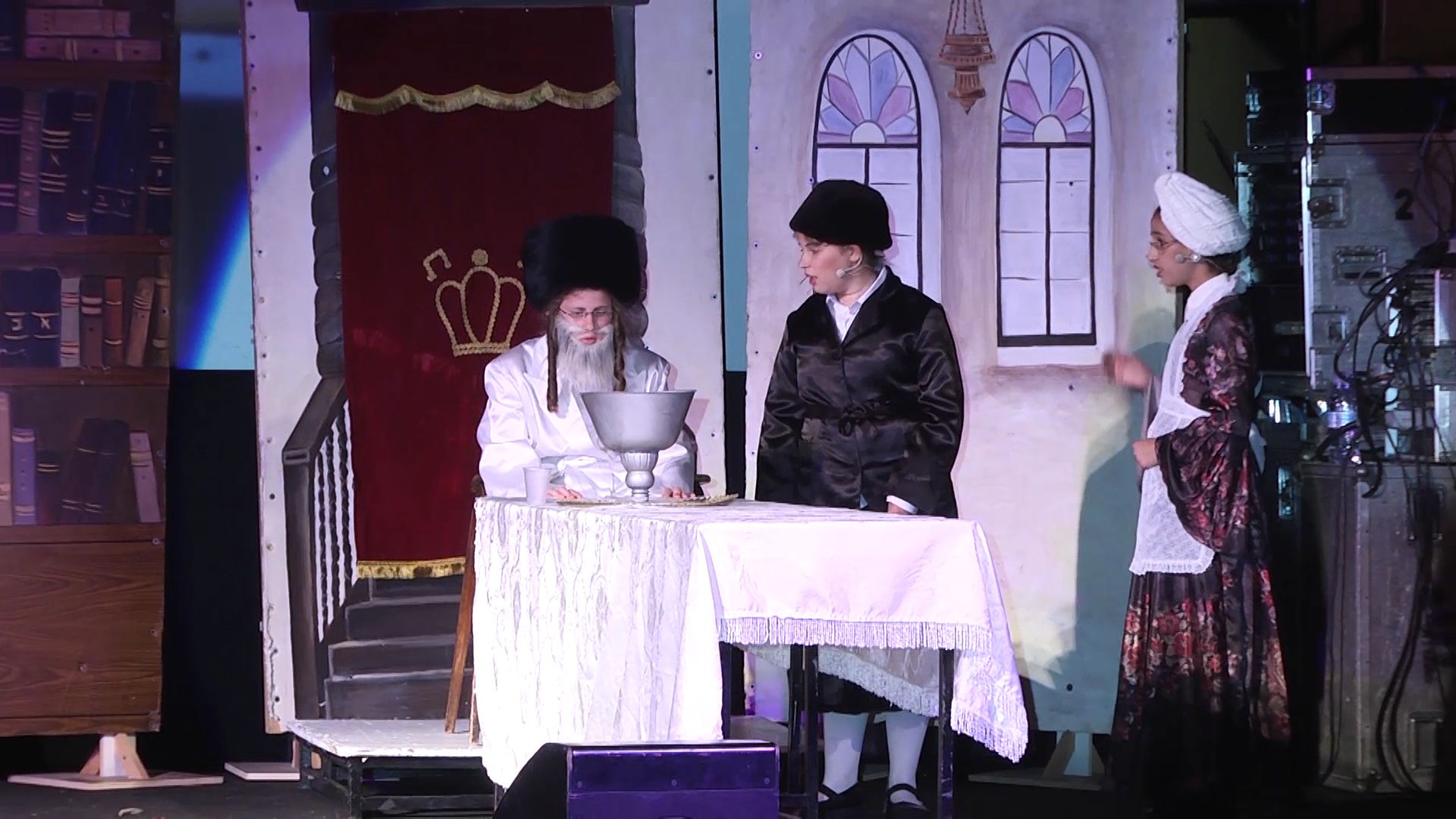
And so it was. Shoshana appeared at the doctor’s office again and asserted firmly that she wouldn’t leave until a vision test was done for the baby. "The doctor really thought I was behaving strangely, but since I insisted, she laid the baby on the examination table and moved a rattle before her eyes: 'You see?' she said to me: 'Look how she follows nicely'. But I was already confident in myself and said: 'Maybe she follows by hearing, because of the rattle’s noise?' Then the doctor removed the large colorful necklace she was wearing and moved it in front of the baby's eyes, and the baby showed no sign of noticing the necklace..."
The doctor turned pale, sat down, and... complimented Shoshana. "She told me I was a particularly observant mother and how I noticed... and the more she was flustered, the more I calmed down because at least I now knew I wasn’t crazy and not imagining things."
The pediatrician referred Shoshana to an ophthalmologist, who couldn’t identify the source of the problem. "She said she saw that the baby couldn’t see, but all parts of the eye seemed fine." From there, they were referred to tests at Hadassah Ein Kerem. "But somehow, the correct diagnosis was missed for a long time," says Shoshana. "She got glasses with a high prescription at five months, but I felt that even with them, she didn’t see well enough. Eventually, the late Professor Ben Ezra diagnosed her at four years: he said she had damage to the light receptors in the retina, and the tests he referred us to proved it."
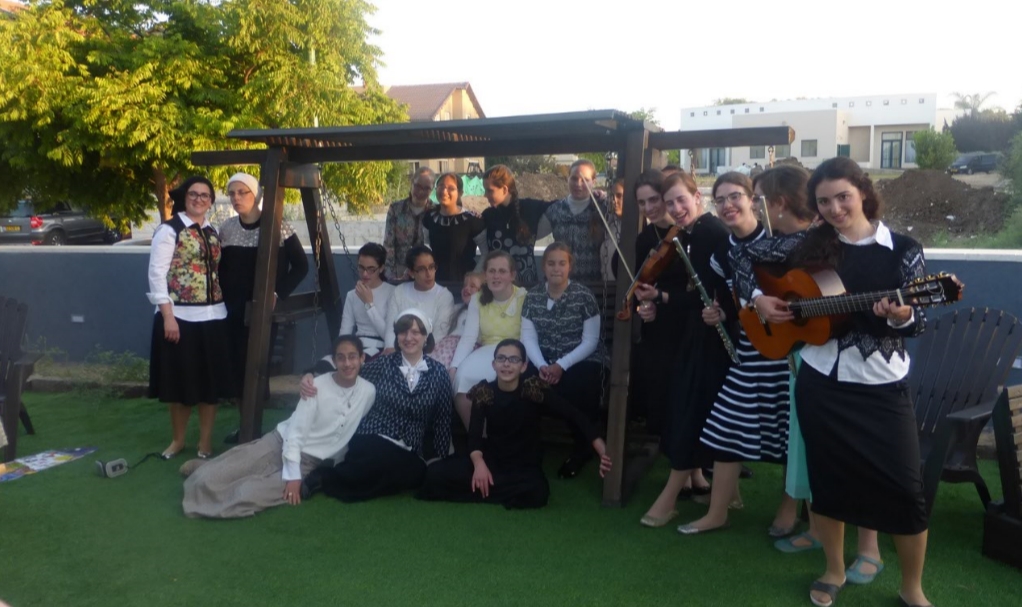
What does this mean in practice? Even with glasses, Shoshana’s daughter, now 16, can only see up close and lacks depth perception. She also struggles to recognize facial features. "Throughout this journey with her, we received no support and had no knowledge," says Shoshana. "No one in the Haredi community knew much about vision problems. Everyone we consulted didn’t understand what it was about. No one could tell us we were entitled to a disability allowance from Social Security, advice from a social worker. We knew nothing. When my sister, who worked in special education, told me about a kindergarten for blind children, I was deeply offended. Why should my daughter go to a special kindergarten? We simply didn’t understand how many difficulties there are for the visually impaired and how many special things they need to learn... so she went to a regular kindergarten and had quite a bit of difficulty."
When the daughter was four, Shoshana gave birth to a son – also with a vision impairment. "It was a huge shock because all the doctors I asked had said the girl’s problem wasn’t genetic," says Shoshana. "Only after the second child did we do genetic tests – which revealed nothing. Only two years ago was the gene that caused the vision impairment in both children discovered, so at least we are reassured that we can have this test done for our children through Dor Yesharim so that dealing with vision impairment can be spared for the next generation."
This time, with the second child, Shoshana started working immediately with welfare and Social Security. From just a few months old, the boy entered 'Gan Eliya', a special rehab facility for the visually impaired. "For me, as a Haredi woman, it was very hard to send a child to such an institution: it's the only one of its kind in Jerusalem and students come from all over the Israeli populace, including Arabs. Even his assistant was Arab... it wasn’t simple. But we asked our rabbi, and it was clear that it was the right thing to do." When he finished the facility, the boy continued in a regular Cheder, where he used equipment costing thousands of shekels to enlarge the Talmud text and capture the blackboard image so he could decode it. (Shoshana says, the daughter attends a regular seminary and refuses any special device, except a magnifying glass). But the connection between the religious mothers of children in the rehab facility – continued.
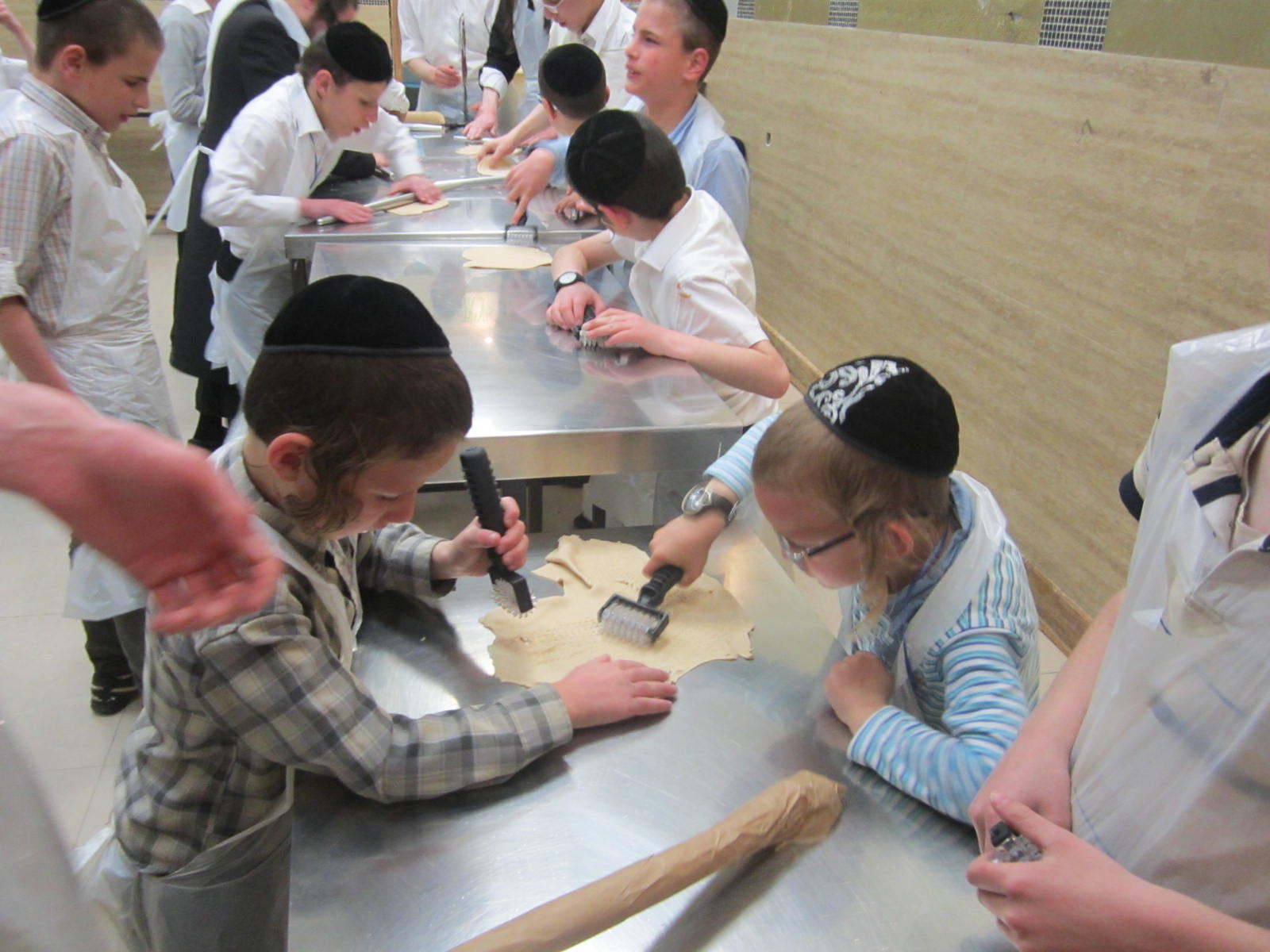
"In the facility, there was huge support for the parents. There was an amazing parent counselor who formed parent groups where we all felt understood and could talk about everything. When the facility ended, we missed those meetings. Mothers would call me and say 'maybe we should organize something'. At first, I organized a support group through welfare, but it quickly faded. Until I met Freda."
For years, Shoshana says, she would complain to her husband why there was no organization like 'Shik-Hesed' or 'Shema Kolenu' for the visually impaired, and express a desire to establish one herself. One day Esther told her about Frieda Mermelstein, an Orthodox woman who recently moved to their area and also had a child with a vision impairment. "Frieda and I had heard about each other before, then we met in the park. We talked, and I told her about my dream to establish an organization for blind children in the Orthodox community. To my surprise, she said she had the same dream and also started telling me who she had already contacted about it."
Shortly after, Frieda traveled abroad for a family wedding. Shoshana met with Esther and told her she had met Frieda and they discovered they had the same dream regarding establishing an organization. "Esther is full of joy and vitality – and also has order in her head. She said to me: 'You know what? Let’s meet the three of us and think systematically about what to do'. So we met, and Esther immediately created order and detailed our vision and goals. Finally, Esther said: Let's be practical and start acting. It’s summer break now. The parents of blind children have a particular struggle – how to entertain a child who can't see for an entire vacation? Let's organize a fun day at Gan Sacher.' And so it was. We called all the mothers we knew. We arranged volunteer drivers for all the children. We got a group of seminar girls as counselors. We even got a donation of pita and falafel...
"This first event made an enormous impression on us. Suddenly we saw up close a large group of children with vision impairments. We saw their hardships – how some didn’t even know how to eat properly! They were integrated into regular education, and of course, they don’t learn this there... we understood the need for enrichment, and so we started with experiential activities, clubs, and courses that also included a therapeutic component under the guidance of a therapeutic teacher. If there was dinner as part of the activity, then she taught the volunteers to teach the children to prepare their dinner themselves – how to spread ketchup on the bun and put the sausage inside, and so on...
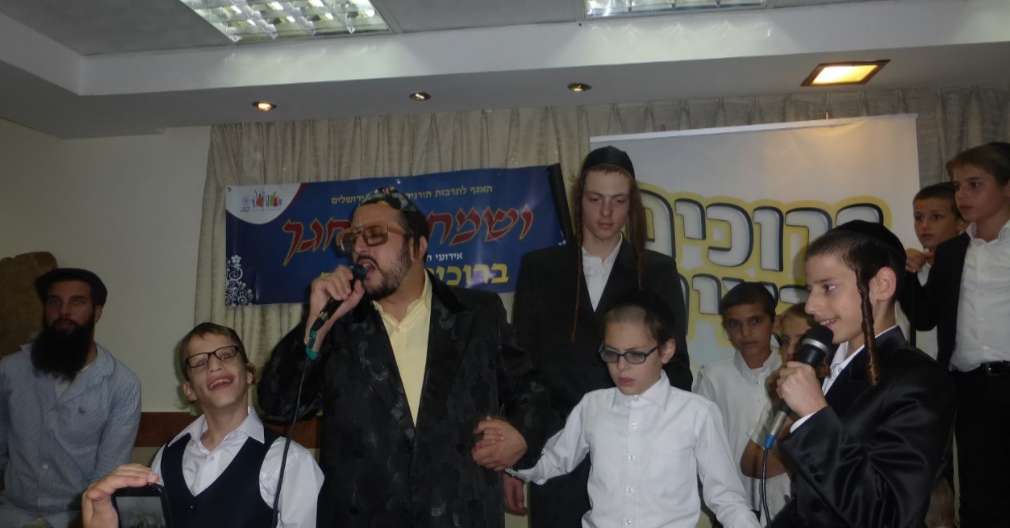
"And we started holding mother’s evenings. Not just a lecture and a program but also elaborate food, blintzes and cheesecake from our kitchen.... We, who know exactly what the mothers are dealing with – it was important for us to prepare them a special evening worth going out of the house for."
Shoshana, Frieda, and Esther have been running the organization for eight years, entirely on a volunteer basis. "We live literally hand to mouth in terms of donations... only recently we started to study the subject of fundraising a bit. We’re trying to become more established. Welfare started recognizing us, the municipality recognizes us. We are approached by numerous parents from all over the country. I receive many phone calls from mothers and truly understand the crying over the phone... some have told me that afterward, the social worker became unnecessary. Because really, the best thing is to talk to someone who’s been there before and understands exactly the feelings and fears of a mother of a child with a vision impairment."
While for the mothers, the organization provides advice, empathy, and a sense of shared destiny, for the children it offers much more: quality clubs, enrichment and training programs that prepare them for life, trips and experiential activities, and most importantly, the feeling they are not alone. That even in their world of lights and shadows, there is friendship and a prideful unit that always adds light to them. In helping these hundreds of children of the organization, who will grow up to become flourishing and confident adults despite the difficulties, the founders of the organization see a great privilege beyond the privilege of helping children like their own. In the prospectus they issued, the words of the Talmud in Tractate Chagigah stand proudly, quoting what a blind righteous individual told Rabbi Judah the Prince, who honored him: "You greet faces that are seen and not seeing; you shall merit to greet faces that are seeing and not seen."
Email address of 'Or Einay' organization: 5003832@gmail.com

